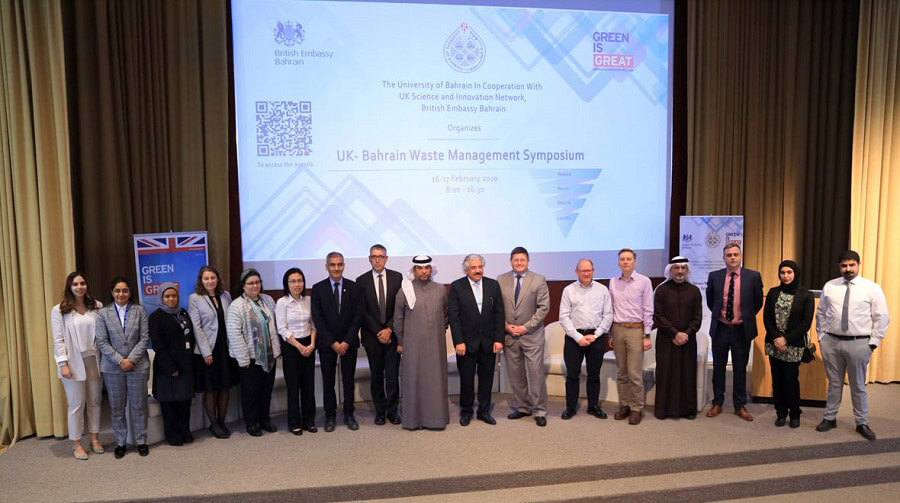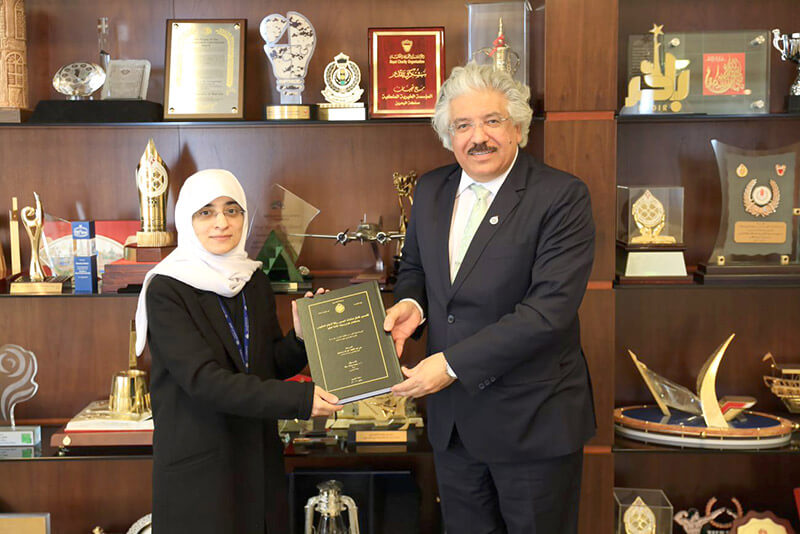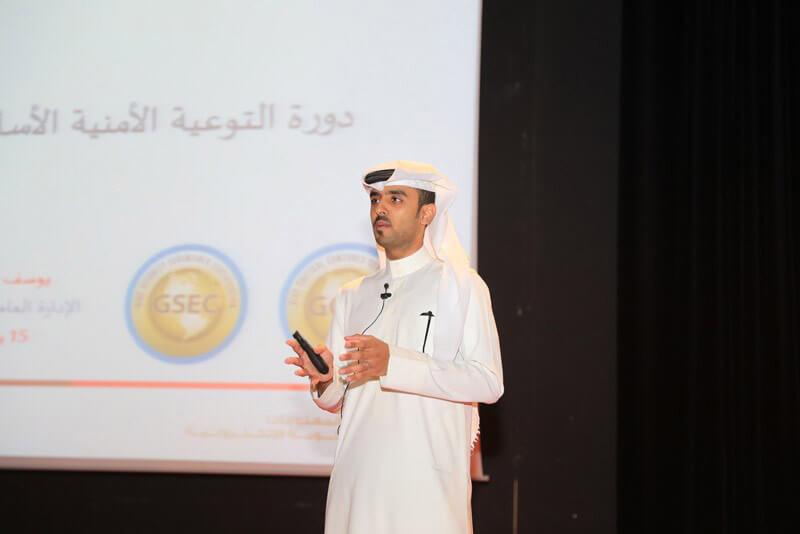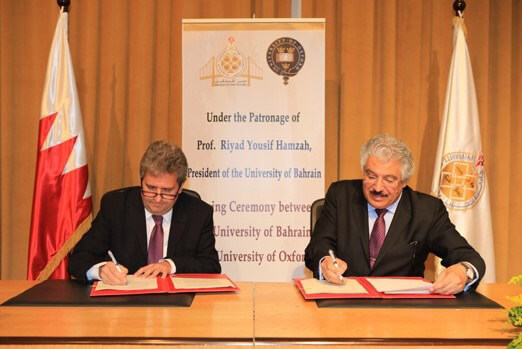NEWS
The Precautionary Measures to Confront the Coronavirus Establish the Right to Life and Health
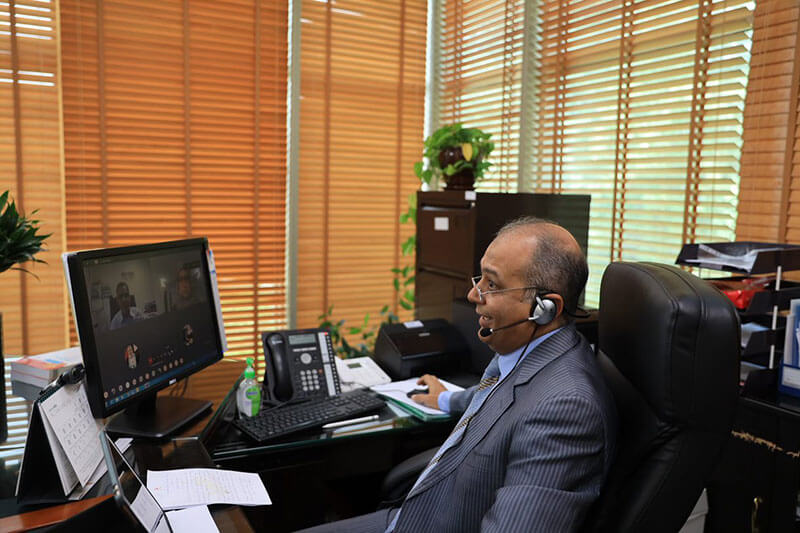
During a Digital Dialogue Session at UOB’s College of Law:
The Precautionary Measures to Confront the Coronavirus Establish the Right to Life and Health
A digital dialogue session at the College of Law at the University of Bahrain (UOB) praised the position taken by the Bahraini legislator and judicial authorities in dealing with the current crisis and his acumen, in addition to how quick he undertook the steps to address the tele-litigation mechanism in order to not disrupt the functioning of the judiciary power, which has a vital role in protecting the rights of individuals in the Kingdom.
The session called for continuing to implement the electronic litigation system even when life is back to normal, especially that it takes into account judicial guarantees and the rights of defence, given the privileges it achieves, stressing that it is one way to activate the implementation of the principle of full justice, which is a fundamental pillar of any judicial system.
The event was organized by the Quality Assurance Office at the College of Law, and its participants saw that the precautionary measures taken by the Kingdom of Bahrain in fighting against the new Corona virus establish protection for the right to life and health, which are superior to all other rights, noting that such measures as quarantine and isolation don’t affect human dignity, constitutional principles and human rights but rather promote them.
Within two scientific sessions on Thursday morning (9 April 2020), the tele-session discussed “The Legal Effects of The Coronavirus,” reviewing 12 scientific papers done by academics from the College of Law.
As the Dean of the College of Law at the University Dr. Salah Mohamed Diab indicated that the dialogue session discussed these issues among others, in an initiative that reflects jurisprudential vigilance, so that the College of Law can take the lead in proposing appropriate solutions to emerging societal problems or issues in these circumstances. Furthermore, Dr. Diab stated in his welcoming speech that “The supreme goal of the law is to achieve justice, not in its simple form but rather in its social and economic one, and that the current crisis may slightly or greatly affect the principle of binding force of the contract which is now subjected to a violent stir due to the financial and economic effects of the Coronavirus crisis,” With expectation of the growth of the issue of being unable to implement contractual obligations in light of the unpredictability and the inability to pay.
Moreover, the paper of the faculty member in the Public Law Department, Dr. Fuad Musa, discussed “Administrative Control, Administrative Contracts, and Administrative Responsibility in the Time of Corona,” as Dr. Musa stated that the Corona pandemic would make changes in theories related to administrative control, contracts, and responsibility, because the exceptional abnormal circumstances expanded the powers of the administrative authorities.
Also, he stressed that these exceptional and unnatural circumstances surpass the conditions of war because the enemy is unknown, indicating at the same time that granting the administrative authorities more powers in these circumstances must be restricted to the condition of preserving human dignity.
While the faculty member in the Law Department of the College of Law and Director of the Quality Assurance Office in the College, Dr. Wafa Jasim Al-Wafi, who supervised the organization of the dialogue session, reviewed a scientific paper on “Mechanisms for Conflict Resolution Before the National Judiciary in Light of the Corona Crisis.”
Al-Wafi pointed out that in the Kingdom of Bahrain “we have a legislative and judicial system reinforced with advanced technology and ready for such digital transformation, and that the current crisis has accelerated the pace of developing litigation mechanisms, all with the keenness to provide fair litigation guarantees, protection of defence rights, respect for the principle of confrontation with evidence and taking into account the accuracy of sentencing procedures by electronic means.”
Also, she stressed that the difficulty of providing such guarantees shall be more evident in the substantive cases, where the urgent lawsuit and state orders can be issued digitally without problems, as the legislator does not require the parties’ presence before the judge, or publicity in taking decisions and orders thereto when the announcements are made by legally operative electronic means.
The first session discussed five scientific papers, which examined digital education as a way of coexistence in the time of Corona, administrative control, criminal responsibility for crimes of transmitting epidemic diseases, quarantine and personal freedom, and legal harmonization to confront the global pandemic.
While the second session discussed seven papers on the legal value of the financial actions of a person infected with the Coronavirus, the international contract in light of the epidemic, force majeure and emergency conditions in light of the Coronavirus, civil liability for viral infection, patent rights, dispute resolution mechanisms in light of the Corona crisis, and finally, the impact of the spread of Covid 19 on the right of the consumer.

